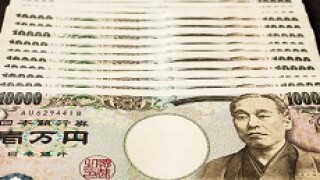Yen
-
Reliance Industries is seeking commitments from banks for a ¥38bn ($351m) Samurai loan in senior syndication. The Indian company’s deal is part of a two-tranche dollar and yen-denominated transaction worth about $1.45bn.
-
Singapore’s CapitaLand Commercial Trust dove into the yen market this month to sell its inaugural green bond.
-
National Thermal Power Corp has sent out a request for proposals for an up to $300m-equivalent term loan.
-
Banque Fédérative du Crédit Mutuel returned for its annual visit to the yen market this week to sell its largest ever Samurai.
-
An explosion of international issuance in yen is being accompanied by a re-evaluation of traditional routes of access into Japanese capital markets. Euroyen deals and Tokyo Pro-Bonds are rapidly establishing themselves as viable alternatives to the Samurai bond market. Tyler Davies reports.
-
An increase in the consumption tax rate will hit Japan’s economy, analysts warn. Alongside a strong yen and global growth fears, this is likely to push the Bank of Japan into further easing measures. With banks creaking under the strain of low rates, Japan’s central bank, under governor Haruhiko Kuroda, will have to concoct a delicate mix of stimuli. Reported by Jasper Cox, ahead of the Bank of Japan’s September meeting
-
A surge in international bank issuance has carried on almost uninterrupted in the yen market this year, even after the Japanese Financial Services Agency raised the bar on investments in total loss-absorbing capital (TLAC).
-
Indonesian state-owned power company PLN has diversified its funding sources. It debuted in the Samurai market, raising ¥23.2bn ($215m) from three bonds while paying a small premium over its outstanding dollar curve.
-
One of the world’s largest companies made its debut in the yen bond market last week, as Berkshire Hathaway placed ¥430bn ($4bn) of multi-tranche debt. With the Japanese government yield curve offering sub-zero returns for anything under 15 years, the six tranche deal offered investors a chance to earn a yield pick-up, according to bankers away from the deal.
-
The Government of Sri Lanka has invited banks to pitch for the lead arranger role for a ¥60bn ($561m) Japanese yen-denominated international bond. The deadline for submissions is next Friday.
-
The dual currency $303m-equivalent loan, which marks Africa Export-Import Bank's (Afreximbank) second entry into the market, is the largest ever Samurai loan raised by an African issuer.
-
Rare international bond issuer Export-Import Bank of India turned to Japan this week for a yen-denominated deal. The ¥32bn ($301.2m) trade was its first standalone Samurai bond since 2006.










